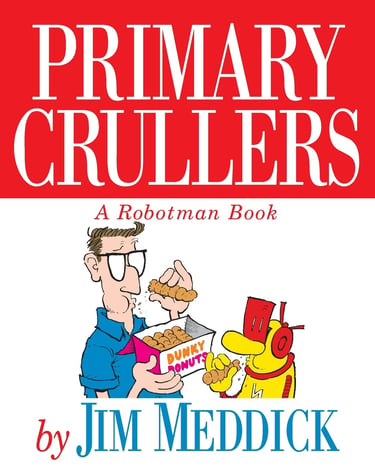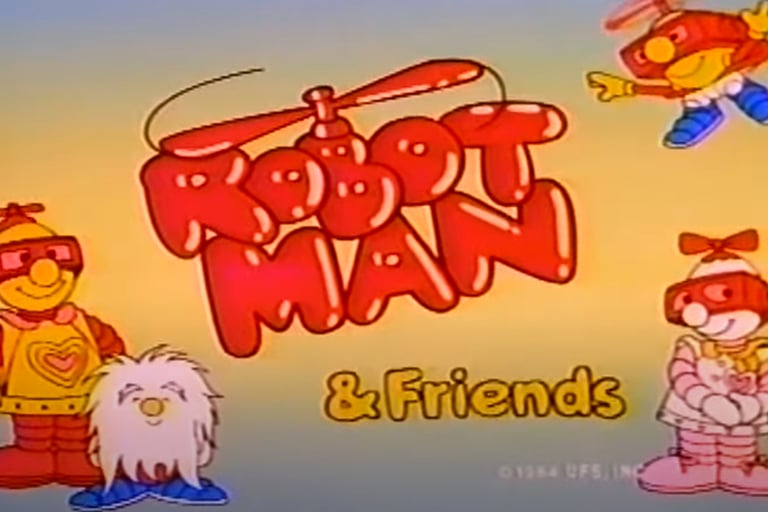
Primary Crullers: A Robotman Book
By Jim Meddick, (1997)
There’s Peanuts. And Garfield. Calvin and Hobbes.
And then there’s Robotman, a comic strip about a robot named…Robotman…who’s from a distant planet and comes to live on Earth with a suburban American family. Until he moves in with a crazy inventor named Monty. Until he’s written out of the strip completely, replaced by said inventor.
The comic is hilarious. Even a work of genius at times. But anyone who loved the original “Robotman” character knows the strip, for the droid specifically, is one of tragedy. Imagine if Garfield was suddenly ditched in favor of Jon, completely replaced and eventually forgotten. That’s exactly what happened here.
Not that Robotman, as an individual, is as funny, dynamic, or personable as Garfield. Or Charlie Brown. Or Calvin. Originally, the robot was little more than a prop of contrivance, a piece of merchandising schlock meant to reel in children and rake in the bucks. He even received a DIC-produced cartoon special that recalls the best, and worst, of that Care Bear/Rainbow Brite early-‘80s era—a time when schmaltz was seen as the key ingredient for kids’ entertainment.
And so, to increase his reach and marketability, the robot got a comic strip in 1985 written, somewhat ironically, by the eccentric Jim Meddick. By his hand, the cartoon’s trite and contrived notions of "love" were quickly squelched in favor of satire and some vicious cynicism. Robotman lost his cuteness and his innocence, and by the ‘90s, the family conceit was dropped in favor of the aforementioned Monty, a raucous and sometimes vacuous sort who eventually stole the proverbial spotlight. Suddenly, the primary character was now playing the straight man, and maybe sidekick, to his tacked-on co-star’s wacky antics. The bot, though imperfect himself, became the superego to Monty’s often unbridled ID/Ego combo. The bot was reduced to being the voice of reason, the dubious onlooker, as Monty’s ongoing shenanigans increasingly overwhelmed, and eventually dominated, the narrative.
In many ways, Robotman is like a reversed Garfield, one where the starring character (the cat) is the boring fuddy-duddy, and the “owner” is the wild, irresponsible one. While Monty runs around with Garfield’s exuberance, Robotman watches with Jon’s subdued chagrin. One could even compare Robotman to Calvin and Hobbes, wherein the bot is essentially Hobbes—always there but barely noticed—while Monty, the Calvin-esque character, wreaks havoc with his schemes. Intended or not, the parallels are interesting.
Hence why, probably, the character of Robotman eventually ran out of power, feeling irrelevant in a world slowly favoring his co-star. By 2001, Meddick wrote the droid out of the strip completely, reassigning him forever to planet Diskelion and rechristening the strip “Monty” in the aftermath. Just like Lyman from that other strip…Robotman was never seen again (and cruelly replaced by a crude facsimile).
Despite existing since 1985, few collections exist of Robotman/Monty’s many exploits. Per Wikipedia, only five books have ever been released: Robotman Takes Off: 1986, Robotman: The Untold Story 1988, Cyberpunktrek: With Robotman and his Evil Twin Bruce, Primary Crullers: A Robotman Book 1997, and The Prehistoric Robotman 2003. Since the comic is still running as of 2024, the absence of any other collections, including those exclusive to Monty, is unfortunate—the strip offers some excellent satire and parody in either (bot or botless) form. Primary Crullers is the easiest compilation to attain, with copies still on Amazon as of this writing. (The strips listed here, save one, are all taken from that volume.)
Robotman’s fate was an ignoble one, but worst is that, all these years later, the strip itself remains largely overlooked, being a kind of secret treat for those lucky enough to have Monty still appearing in their local newspaper. The strip isn’t cute like Garfield or whimsical like Calvin, nor does it contain Peanuts’ innate relatability. But for those who like their humor n’ art a bit rawer, a bit dirtier, Meddick's work is worth some reading.
And for those old, out-of-print books, they’re treasures that deserve a serious unearthing.--D
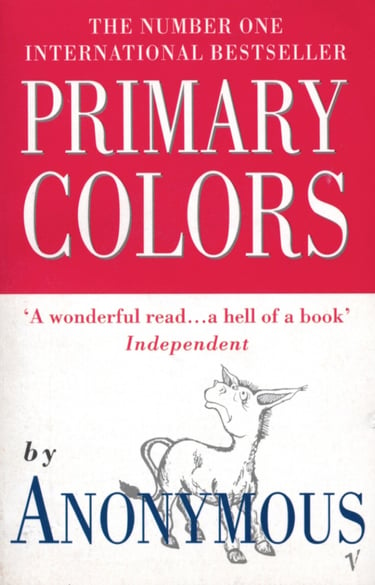

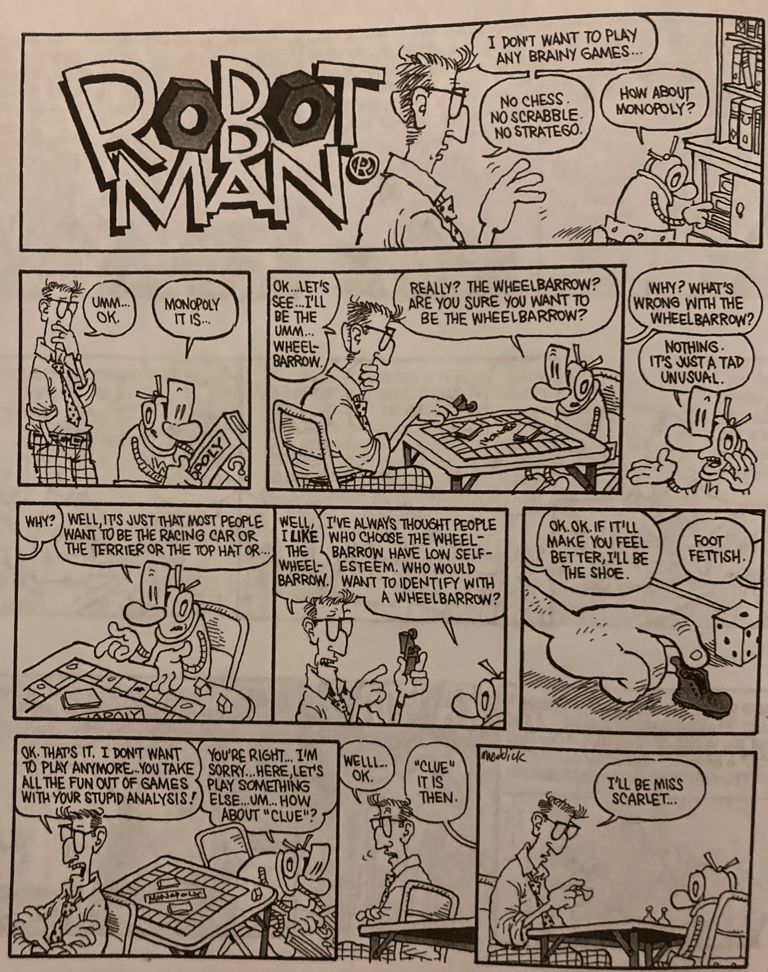

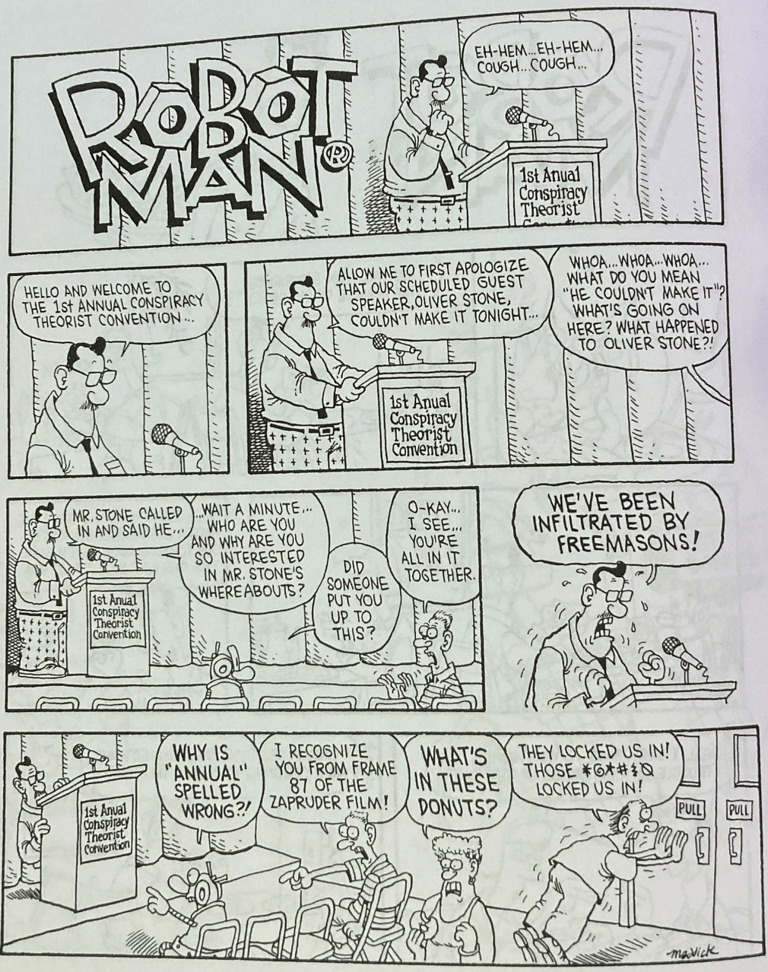

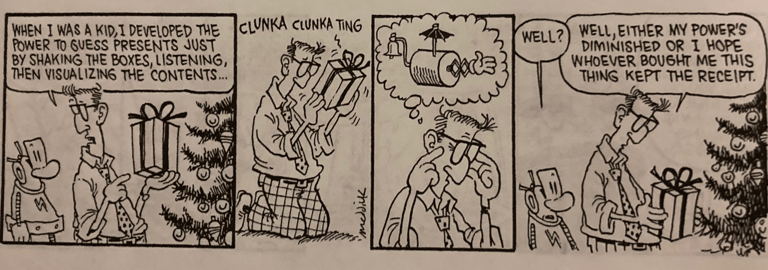

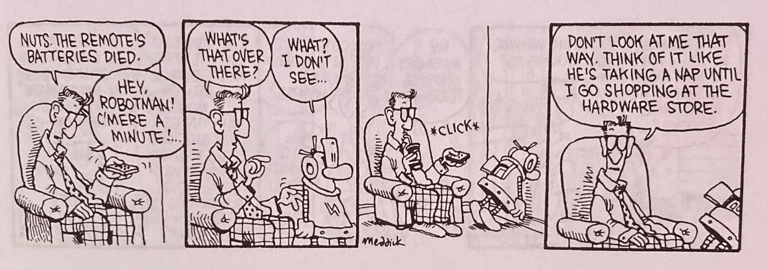

Robotman, more than being the star, is often reduced to stooge, sap, or incredulous witness to Monty's non sequitur of a life.
Robotman, the character, is at his best when he's employing his high-level intelligence--usually at Monty's expense.
The rare, later strip in which Robotman appears without his limelight-swiping roommate. Even so, the bot is barely a part of the joke; he's more the witness, there for the reader's convenience.
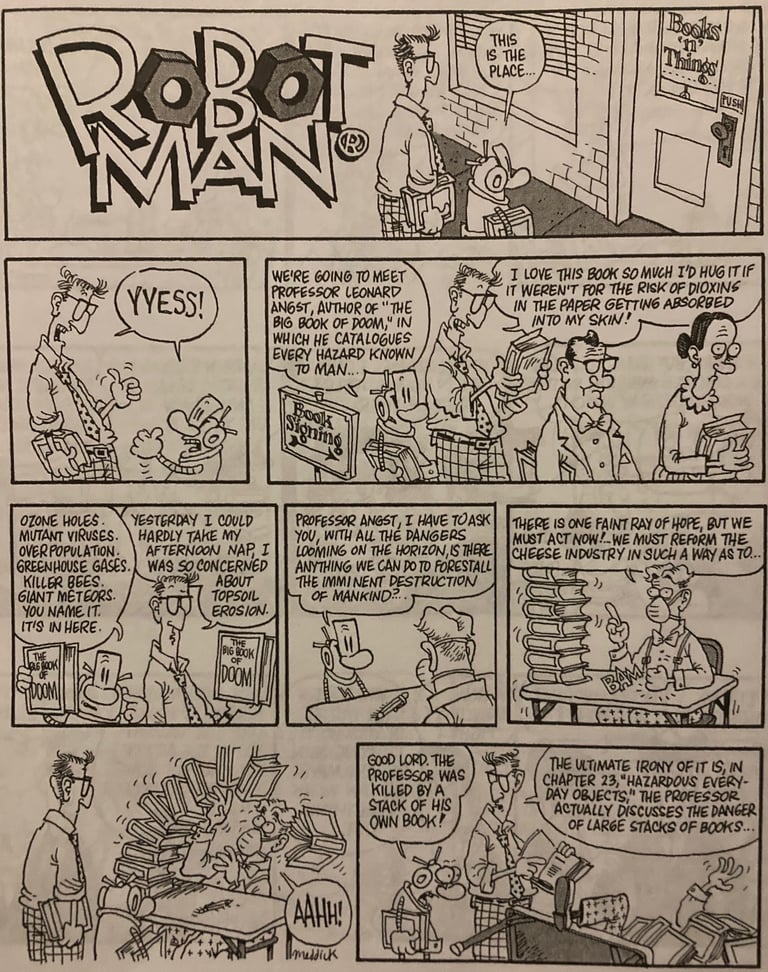

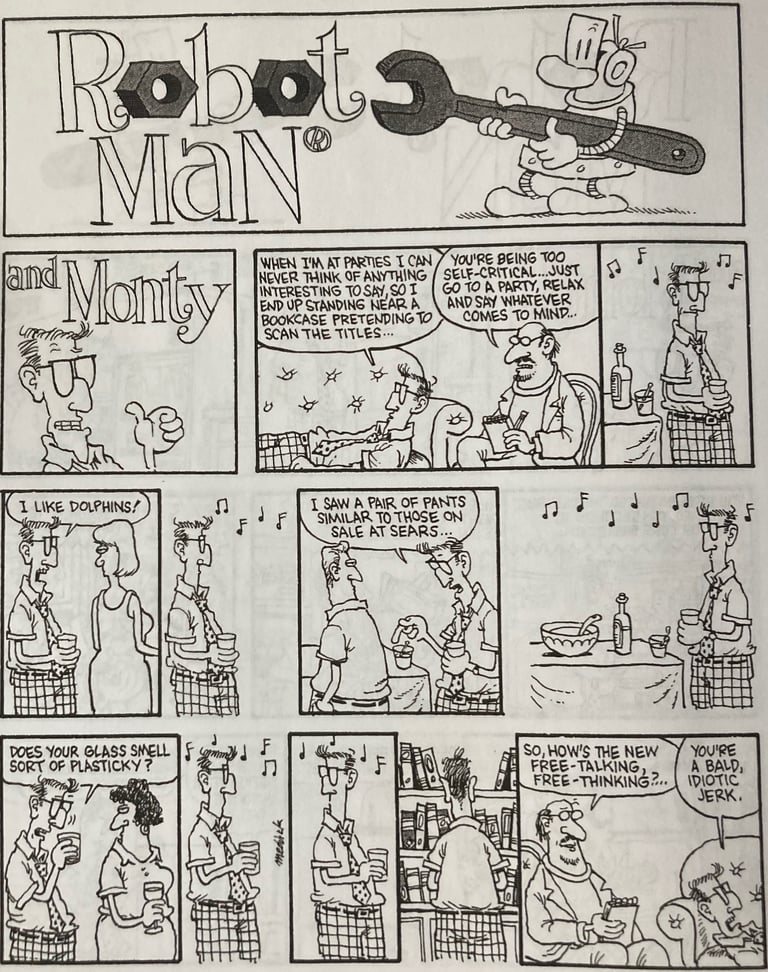



After being written out of his own strip, Robotman was eventually replaced by this crude, badly-drawn replacement. Whether meant as a tribute to or mockery of the original character, it's very meta...and very Meddick.
This particular strip cuts Robotman out of his own strip completely. A foreshadowing, indeed.
Meddick enjoys his share of satire and parody. Here, he lampoons the doomsayers--those who make millions warning about every conceivable danger.
The Robot Man cartoon show is nothing like the comic strip. Its existence defies explanation--and is worth watching just for that reason alone.
The book used for this review--Primary Crullers--is itself a parody of the 1996 novel Primary Colors.
Contact: lostnostalgiaproductions@gmail.com
Website: www.lostnostalgia.com
Like what we're doing? Please consider throwing us a dollar into our Patreon page's tip jar!



